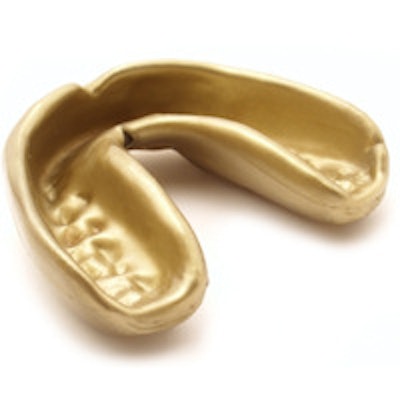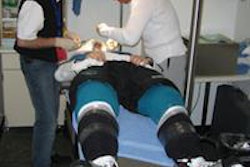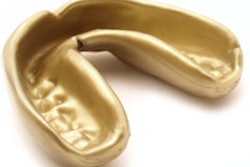
What do you say when parents come to you asking if their children who play sports should wear a mouthguard? With the release of a recent study showing that high school football players wearing store-bought, over-the-counter mouthguards were more than twice as likely to suffer mild traumatic brain injures/concussions than those wearing custom-made, properly fitted mouthguards, more parents may be asking you about this in the coming weeks.
The American Academy of Pediatric Dentistry surveys confirm that as much as 39% of all dental injuries in children are caused by direct hits with a hard object, such as a puck, ball, or stick in player-to-player contact. And while you would expect that high-contact sports, such as martial arts or rugby, to have a high risk of dental injury, gymnastics and cheerleading also pose a considerable risk.
“With numerous options the choice ultimately boils down to three main factors: protection, comfort, and cost.”
In its handout, "Protecting Teeth with Mouthguards," the ADA states that "an athlete is 60 times more likely to suffer harm to the teeth when not wearing a mouthguard" (Journal of the American Dental Association, December 2006, Vol. 137:12, p. 1772).
The function of a mouthguard, also called a gum shield, is to help cushion a blow to the mouth, minimizing the risk of broken teeth and injuries to a child's lips, tongue, face, or jaw. When it comes to protecting the mouth, a mouthguard is an essential piece of gear that should be a part of standard athletic equipment from an early age, according to the ADA.
With numerous options available on the market, particularly in the home sector custom-fit guards, the choice ultimately boils down to three main factors: protection, comfort, and cost. The ADA has four recommends for choosing mouthguards:
- The mouthguard should be strong and resistant to tears.
- It should fit properly and comfortably stay in the athlete's mouth.
- The mouthguard should be easy to clean.
- It should allow the athlete to talk, breathe, and stay hydrated during the game.
Which brings us back to the question of what do you tell parents of children playing sports? And then their natural follow-up question is: Which mouthguard is the best?
There are three types of mouthguards: stock, custom fit, and dental.
Stock mouthguards that can be purchased at drugstores and sporting goods stores, as well as online. Prices typically range from less than $1 to $5. These guards have minimal special features and provide a minimal amount of protection.
Custom-fit mouthguards, as their name implies, offer a more customized fit through an at-home molding process. Recent advancements in technology allow for options that are 1.6-mm thin for optimized athletic performance. To reduce the risk of exposure to germs, it makes sense to get a guard that will stay in the mouth for the entire duration of the game. These can be purchased online or elsewhere.
The third type of mouthguards are dental mouthguards, which are fit by a dental professional. This type of mouthguard is molded specifically for the athlete's teeth in a dental laboratory facility. This is the best custom-fit option and offers outstanding dental protection. However, these mouthguards may be bulky. They are the most expensive option for your patients to purchase. If you don't offer these in your practice, consider having a referral list for patients who ask about these for their children.
While peer pressure may push a child away from wearing the right dental protection for their sport, it is worth reminding parents, and their young athletes, that the injury rates are high and the dental care costs are expensive. If you can assist them in finding a mouthguard that is thin and comfortable, doesn't distort their natural look or speech pattern, and stays in the mouth during the entire game, not only is the young athlete more likely to wear the mouthguard, but you may also receive tangential referrals and positive word of mouth among a patient population always looking for answers.
Rita Shelley is the director of marketing for SISU Mouth Guards.
The comments and observations expressed herein do not necessarily reflect the opinions of DrBicuspid.com, nor should they be construed as an endorsement or admonishment of any particular idea, vendor, or organization.



















